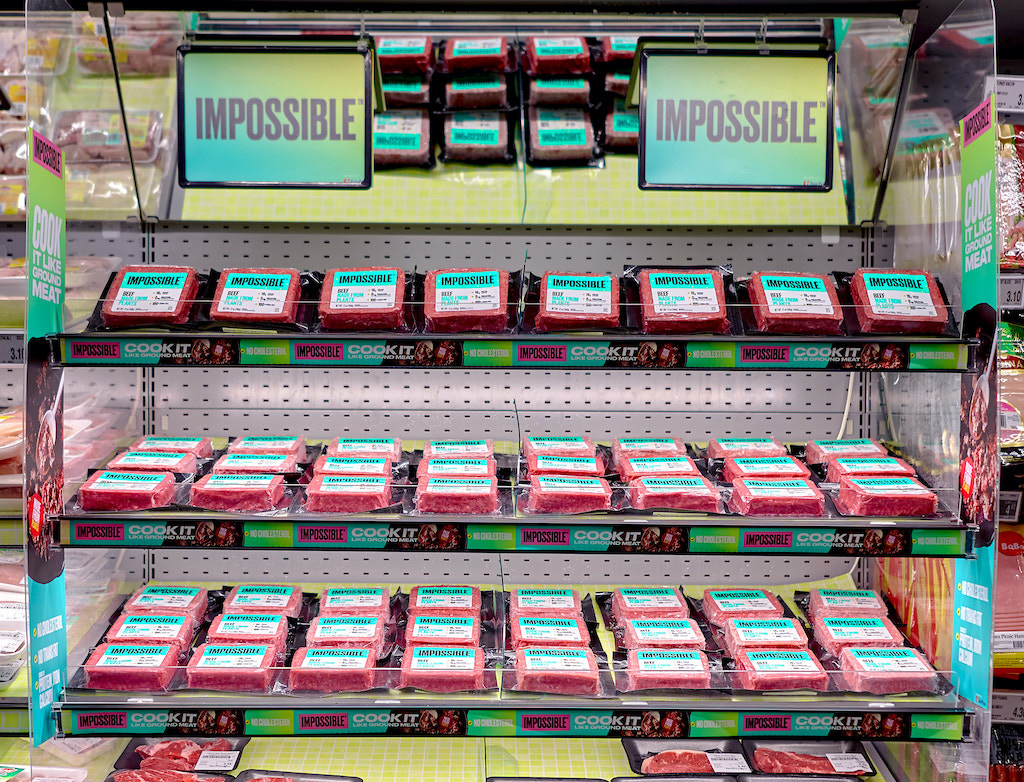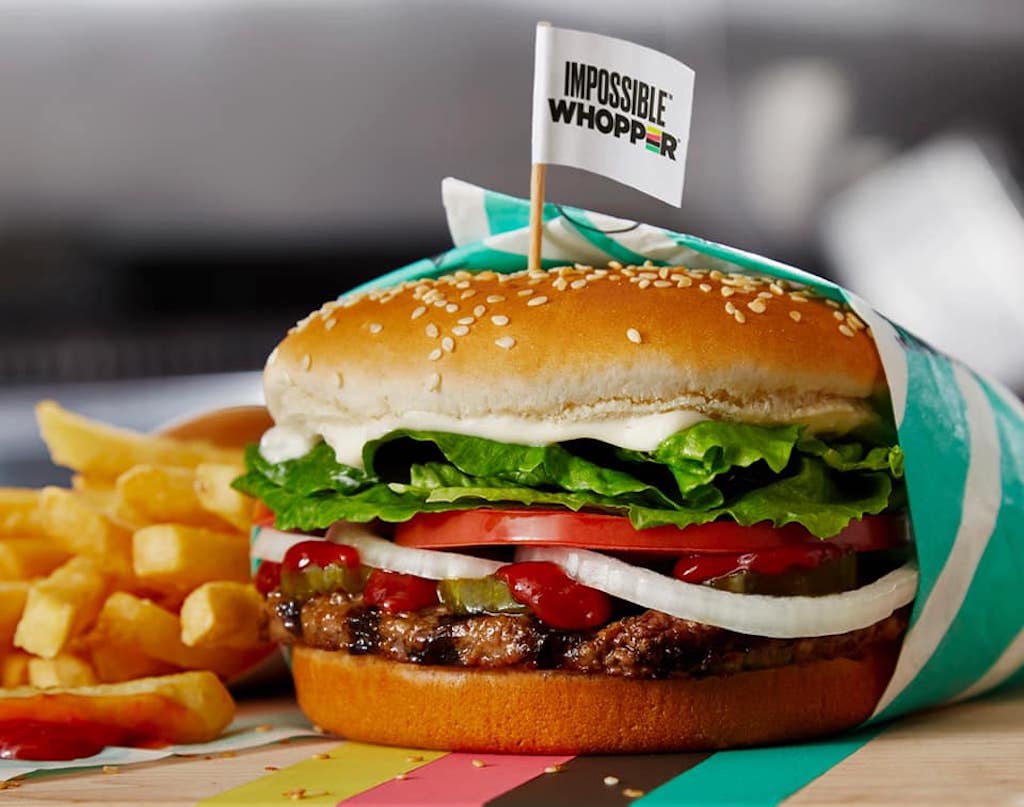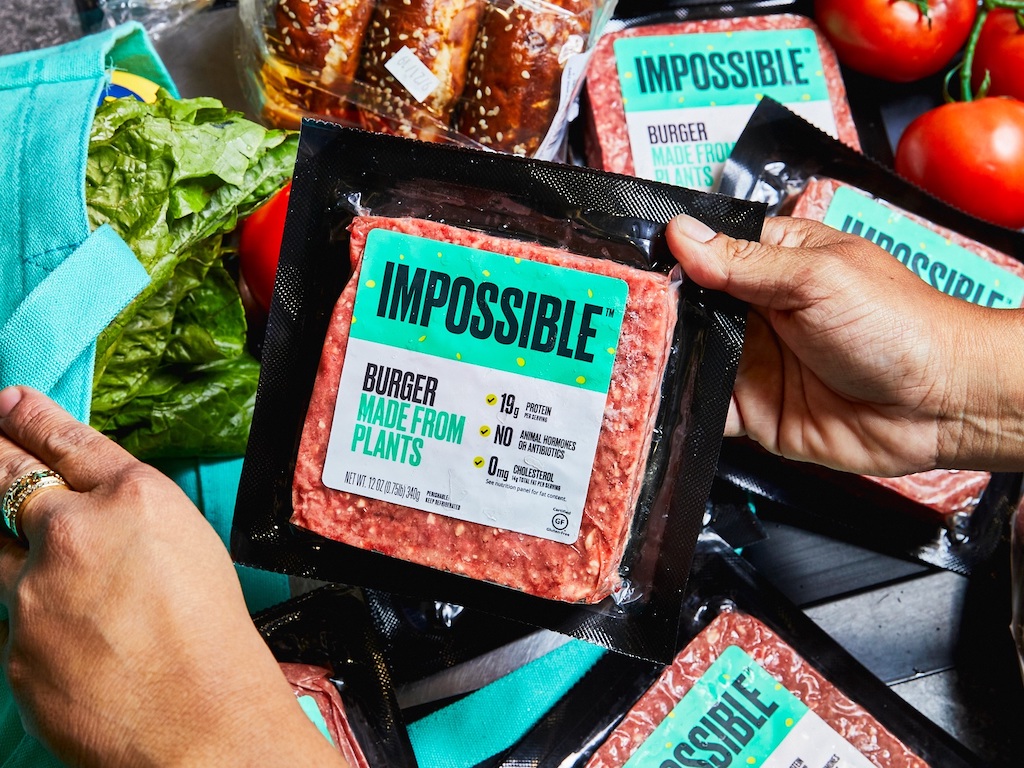3 Mins Read
Plant-based food tech giant Impossible Foods is said to be in discussions for a public listing that could value the company at US$10 billion or more, according to an exclusive Reuters report. The listing is reportedly taking place within the next twelve months through a SPAC merger deal, a popular vehicle for a number of recent high-profile IPOs.
Impossible Foods is in talks to go public on the stock market, sources familiar with the matter told Reuters on Friday (April 9). The Silicon Valley startup is reportedly seeking a valuation of US$10 billion or more in its listing, a figure far higher than its US$4 billion valuation in 2020 but on par with the confidential IPO filing that fellow food tech Oatly has made, which is rumoured to be aiming for US$10 billion as well.
According to the report, Impossible Foods is likely to go public via a merger deal with a special purpose acquisition company (SPAC), known as a blank check company, within the next twelve months to join the growing list of publicly traded food tech companies, of which its rival Beyond Meat was the first in 2019. Other big name food techs that are rumoured to consider going public include plant-based egg and cultured meat maker Eat Just.

Launching its IPO through a SPAC, while a popular route for many companies given the fewer regulatory hurdles and greater valuation certainty, would mean a dilution of existing Impossible Foods shareholders, among them big names like billionaire Li Ka-shing’s Horizon Ventures, Bill Gates, Khosla Ventures and Jay Z.
Other companies that have listed publicly through a SPAC deal include vertical farming startup AeroFarms, space travel company Virgin Galactic and the upcoming WeWork IPO.
Impossible Foods has yet to comment on the news, and sources added that the company could choose to pursue private fundraising instead, as private deliberations are still ongoing.
The move will likely turn many investors’ heads, given the skyrocketing growth of the entire plant-based industry and Impossible Foods’ enormous brand presence in the market. The latest figures show that retail sales of plant-based foods in the U.S. have risen double-digits year-on-year to top US$7 billion, driven by the mainstream consumer shift towards alternative proteins.

Impossible Foods’ own sales have received a major boost too over the past year, with Covid-19 propelling its “largest operational expansion” in its 10-year history and fuelling the expansion of its retail footprint by more than 100-fold, from 150 stores in its 2019 grocery debut to more than 20,000 nationwide, as well as in international markets like Hong Kong and Singapore.
It has also made several high-profile partnerships with foodservice players, the most recent being its deal with Burger King Canada to launch the Impossible Whopper in locations across the country, made with its patty that requires 87% less water and 96% less land to produce, and emits 89% fewer greenhouse gas emissions.
Much of the company’s marketing success has been down to its mass-market approach, targeting omnivores and flexitarians, rather than vegans or vegetarians. Impossible’s first-ever national advertising campaign, for instance, boldly declared that its famous heme-filled plant-based beef patty was no different from real meat made “for meat-lovers”.
All images courtesy of Impossible Foods.




